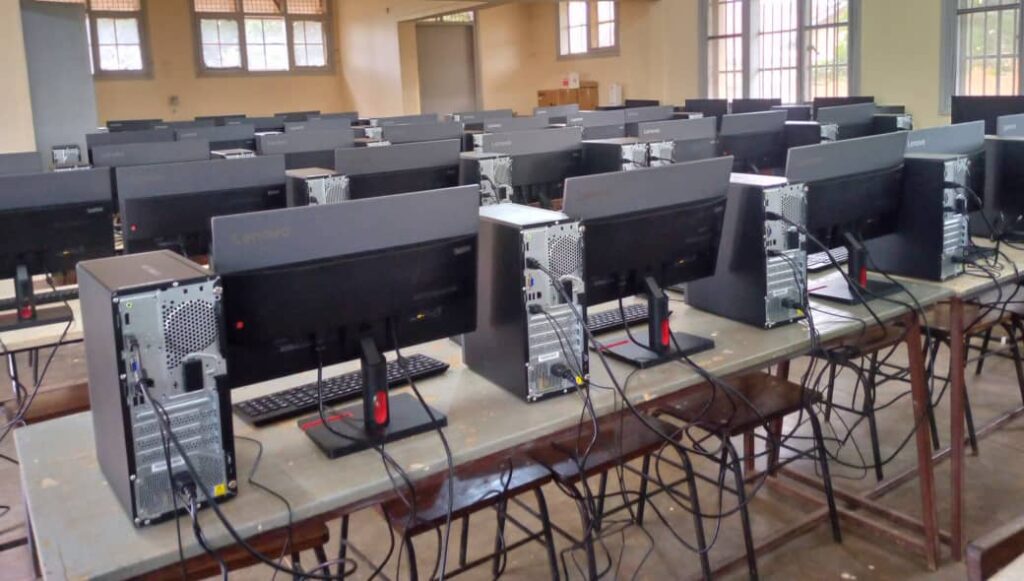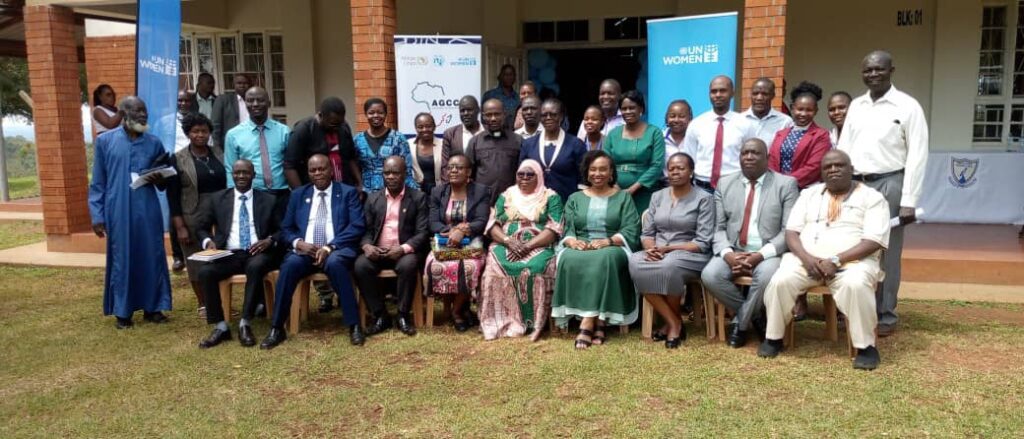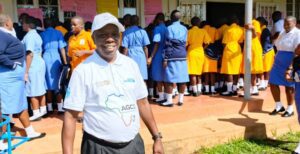
On the morning of 23rd October 2025, a new chapter of empowerment unfolded at Wanyange Girls’ Secondary School in Jinja. The usually serene compound buzzed with excitement, music, and pride as students, dignitaries, and partners gathered for a historic moment — the inauguration of the Eastern Region African Girls Can Code Initiative (AGCCI) ICT Hub.
The ceremony was graced by prominent figures, including Ms. Adekemi Ndieli, the UN Women Deputy Country Representative, Dr. Hajjat Safina Musene, Commissioner for Health, Education, and Training at the Ministry of Education and Sports (MoES), and Mr. Kisambira Eria, the Jinja District Education Officer. Their collective presence underscored the national and international commitment to advancing gender equality in the digital space.
A Vision of Empowerment and Inclusion
The African Girls Can Code Initiative (AGCCI) is a flagship program by UN Women and the African Union Commission (AUC), implemented in partnership with the International Telecommunication Union (ITU) and supported by GIZ. The initiative seeks to equip African girls with the digital and coding skills needed to thrive in an increasingly technology-driven world.
By launching the Eastern Regional ICT Hub at Wanyange Girls, Uganda joined a growing network of innovation spaces across Africa designed to empower girls through hands-on training in coding, robotics, web development, and digital entrepreneurship. The hub aims to nurture creativity, innovation, and leadership — preparing young women not only to participate in the digital economy but to shape it.
Speaking during the ceremony, Ms. Adekemi Ndieli emphasized the importance of giving girls equal opportunities in the technology sector, noting that “when we invest in the digital skills of girls, we are not only changing their lives but transforming the economic future of entire communities.”
The Significance of the Wanyange Girls ICT Hub
Wanyange Girls’ Secondary School was chosen for its rich history of academic excellence and its commitment to nurturing confident, capable young women. The school will now serve as a regional centre of excellence for digital learning and innovation — hosting workshops, bootcamps, and mentorship programs that bring together students from across Eastern Uganda.
Under the AGCCI framework, girls will be introduced to the principles of coding and problem-solving, mentored by experts, and encouraged to pursue careers in Science, Technology, Engineering, and Mathematics (STEM). The hub also provides a safe environment where girls can explore technology freely, challenge stereotypes, and build confidence in their digital abilities.
Voices of Commitment
Dr. Hajjat Safina Musene, representing the Ministry of Education and Sports, commended the initiative as timely and transformative. She noted that Uganda’s education sector is increasingly integrating ICT into learning, but girls remain underrepresented in the field. “This hub,” she remarked, “bridges that gap and ensures that girls from Eastern Uganda have access to world-class digital learning opportunities.”
Mr. Kisambira Eria, the Jinja District Education Officer, lauded UN Women and its partners for choosing Jinja as a host, expressing optimism that the project would inspire other schools to embrace technology-driven education. He called upon local leaders and parents to support girls in pursuing ICT-related studies, highlighting that the future belongs to those who understand and can apply technology.
Building a Generation of Digital Leaders
Beyond the speeches, the event was a vivid celebration of potential. Students showcased digital art, short coding projects, and innovations that demonstrated the power of creativity when combined with technology. The air was filled with optimism — the kind that comes from knowing that opportunities are no longer confined to major cities or boys-only spaces.
The AGCCI hub at Wanyange Girls represents more than a physical structure filled with computers. It is a symbol of hope and progress, an investment in the future of young Ugandan women. With the right support, these girls will not only learn to code — they will learn to lead, to innovate, and to create digital solutions for their communities.
Looking Ahead
The launch aligns with Uganda’s National Digital Vision 2040, which aims to transform the country into a digitally empowered society and knowledge-based economy. The AGCCI complements this vision by ensuring inclusivity — that girls are not left behind in this technological revolution.
As the day drew to a close, one could feel the inspiration spreading among the students. They left the event not just as spectators, but as future coders, engineers, and entrepreneurs.
The message was clear: the future is digital, and girls can code it.












